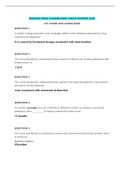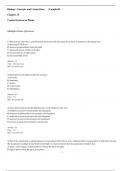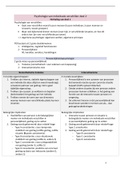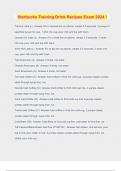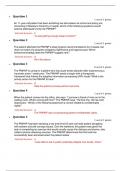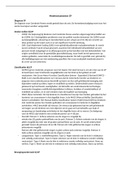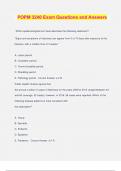Autre
Therapeutic Interventions 8812 Notes
- Cours
- Établissement
These notes include: • Summary of cases involving Stan and Bonolo • LU1: Basic Issues in Counselling and Practice • LU2: Theories and Techniques for Counselling • LU3: Introduction to Crisis Intervention • LU4: Integration and Application All information is taken from textbook and ...
[Montrer plus]




